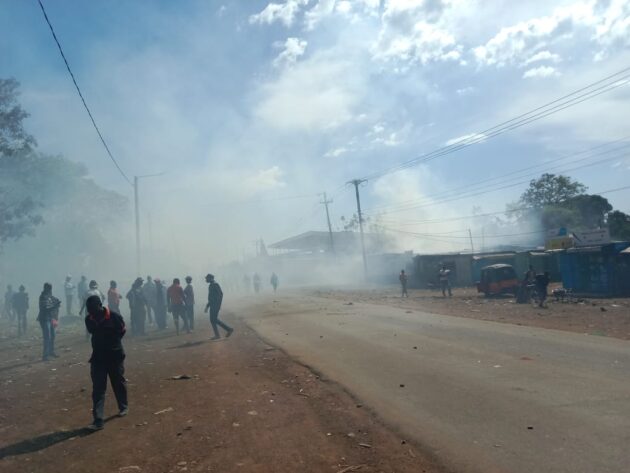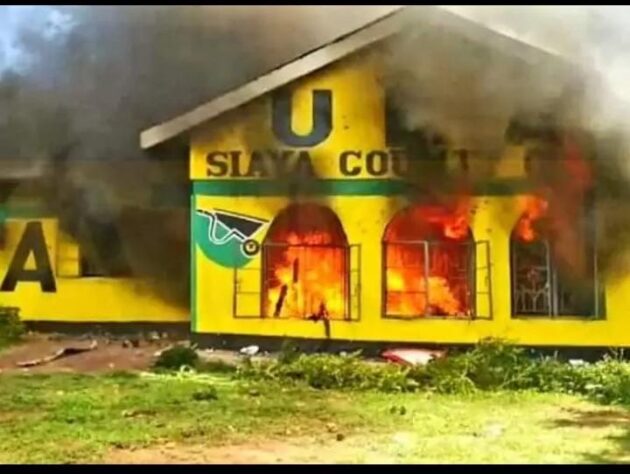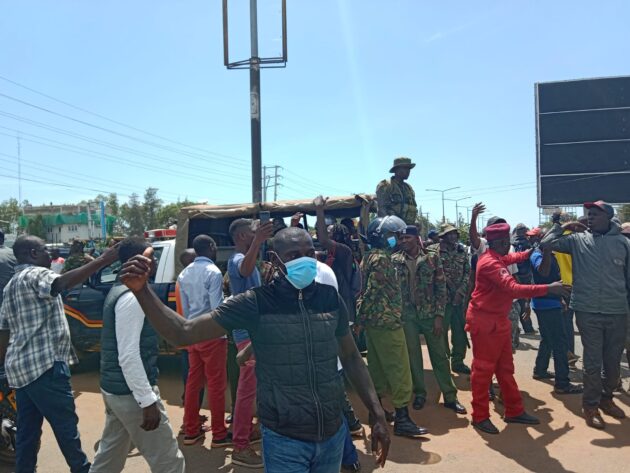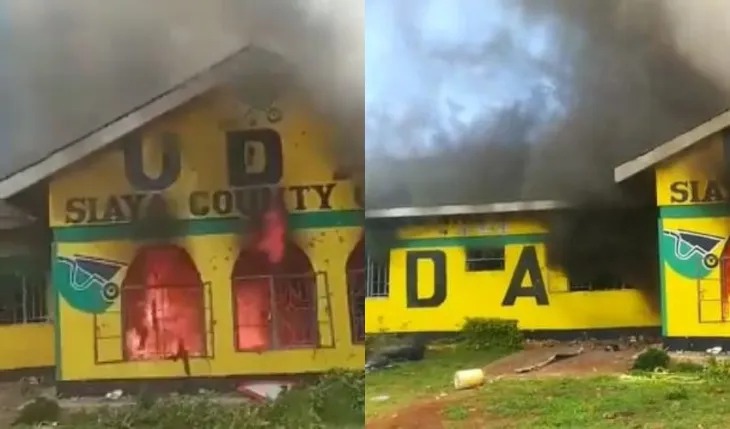On Thursday, the third day of opposition protests against the government and the high cost of living, there was some violence in Kenya.

Security was tight, with police roaming the city of Nairobi in riot gear after violent altercations broke out at similar protests on Monday.
On Thursday, scores of civilians engaged police in running skirmishes while throwing rocks and burning tires in the crowded Nairobi neighbourhoods of Mathare and Kibera. Police replied with tear gas.
Protesters also threw rocks at police and ignited bonfires in the middle of the road in western Kenya's lakeside strongholds of Kisumu and Homa Bay, home to opposition leader Raila Odinga.
Did you read this?
Every Monday and Thursday, Odinga has called for rallies, accusing President William Ruto of stealing last year's election and failing to rein in the rising cost of living.
The government has deemed the protests illegal. In the past, the protests have descended into violence, with police using tear gas, water cannons, and occasionally live ammunition, while looters have gone on the rampage.
According to government statistics, 51 police officers, 85 civilians, and two civilians have been slain.

The international community and religious leaders have urged restraint, expressing concern that the violence may spiral into the kind of interethnic conflict that followed the 2007 election and resulted in more than 1,100 fatalities.
Eight foreign embassies, including those of the United States and former colonial power Britain, expressed their worry about the recent turmoil and violence and the damage to houses of worship and private property in a joint statement on Wednesday.
- "Picture Of Chaos" -
On Wednesday, Interior Minister Kithure Kindiki pledged to prosecute anyone who incited public disorder or disturbed the quiet, "regardless of the political party."
He stated that "the current depiction of anarchy, and the developing criminal craziness, must cease." The stability of our nation and the rule of law are in great jeopardy due to the current scenario.
On Monday, police used tear gas to disperse protesters in Nairobi and Kisumu. They also targeted Odinga's convoy and vehicles carrying journalists with the gas canisters.
In the outskirts of Nairobi, at least 2,000 robbers came on former president Uhuru Kenyatta's expansive farm, stealing sheep and cutting down trees before setting a portion of the property on fire, according to authorities.

After a disagreement with his former deputy Ruto, Kenyatta supported Odinga's bid for the presidency in August last year.
Gangs in Nairobi also targeted Spectre International Ltd, a gas firm owned by Odinga.
Kenyans battle to feed their families In large numbers due to rising prices for necessities, a falling local currency, and a record-breaking drought that has left millions of people without enough to eat.
In February, inflation was 9.2 per cent, and food prices were 13.3 per cent.
On Wednesday, the Central Bank of Kenya increased its benchmark lending rate by 75 basis points to 9.5 per cent, portending that loans for Kenyans will be more expensive.
Ruto ran for office on a platform of standing up for the oppressed and promising to make life better for regular Kenyans.
Yet, he has now cut off subsidies for food staples like maize flour and petrol.
In addition, despite Ruto's assurances in January that there would be no rise, Kenya's energy regulatory authority said last week that electricity prices would increase starting next month.









